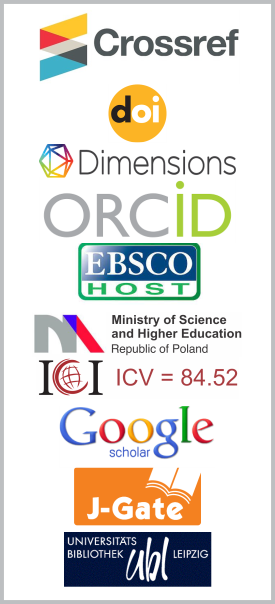The Effectiveness of a Massive Open Online Course (MOOC) Environment in a Higher Education Institution in Malaysia
DOI:
https://doi.org/10.26713/jims.v9i4.1027Keywords:
MOOC, Effectiveness, Higher Education InstitutionAbstract
Massive Open Online Course (MOOC) has disrupted the worldwide educational system and brought to effective changes in the existing higher education system. Openness, diversity, availability and affordability of MOOC offer participants the high quality learning contents and encourage lifelong learning with technology enhancement. However, MOOC still troubled with pedagogical issues, assessment, students-instructor respond system, limited interaction and low completion rate. Thus, this study aimed to evaluate the effectiveness of MOOCs that has been launched in a higher education institution in Malaysia. This study will discuss the effectiveness of MOOC, based on seven evaluation factors: (1) flexibility; (2) content; (3) pedagogical; (4) lifelong learning; (5) network learning; (6) openness and (7) self-organized learning. Participants are 40 students from a local higher education institution. The analysis of collected data uncovered the extend participants' perception in impacts and efficiency of MOOC for their future learning environment. Overall findings have shown that high satisfaction towards MOOC learning environment, with average mean score of 4.00 and above, especially for openness, flexibility, pedagogical and self-organized learning level of MOOC. Of seven evaluation factors, openness factor has achieved a highest average mean score of 4.59, highest satisfaction level from the students' perspective on MOOC.Downloads
Download data is not yet available.
Downloads
Published
2017-12-30
CITATION
How to Cite
Yue, W. S., & Attaran, M. (2017). The Effectiveness of a Massive Open Online Course (MOOC) Environment in a Higher Education Institution in Malaysia. Journal of Informatics and Mathematical Sciences, 9(4), 1303–1308. https://doi.org/10.26713/jims.v9i4.1027
Issue
Section
Review Article
License
Authors who publish with this journal agree to the following terms:- Authors retain copyright and grant the journal right of first publication with the work simultaneously licensed under a CCAL that allows others to share the work with an acknowledgement of the work's authorship and initial publication in this journal.
- Authors are able to enter into separate, additional contractual arrangements for the non-exclusive distribution of the journal's published version of the work (e.g., post it to an institutional repository or publish it in a book), with an acknowledgement of its initial publication in this journal.
- Authors are permitted and encouraged to post their work online (e.g., in institutional repositories or on their website) prior to and during the submission process, as it can lead to productive exchanges, as well as earlier and greater citation of published work.




